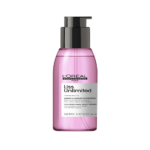
When it comes to achieving a luminous, even-toned complexion, few skincare ingredients are as celebrated as vitamin C for skin. Known for its potent antioxidant power, this skincare hero works to protect, repair, and rejuvenate your skin, making it an essential part of any brightening routine. Let’s dive into how it works and how you can make the most of it for radiant, healthy-looking skin.
How Vitamin C Works ForSkin Brightening?
Vitamin C plays a dual role in skincare, serving as both a shield and a repair tool. First, it protects your skin from daily environmental stressors, such as UV rays, pollution, and free radicals, that can cause dullness and uneven tone. By neutralising these harmful effects, vitamin C helps prevent new pigmentation from forming.
Second, it actively works to fade existing dark spots and hyperpigmentation. Vitamin C inhibits the production of melanin, the pigment responsible for skin colour, which makes it a key ingredient for skin brightening. Over time, consistent use can result in a visibly clearer and more even complexion.
Additionally, vitamin C supports collagen synthesis, improving skin firmness and reducing fine lines, giving your face a fresher and more youthful glow.
How To Use Vitamin C Effectively?
To get the best results from vitamin C for skin, it’s important to choose the right formulation and apply it correctly. Vitamin C is most effective when used in serums because they have a higher concentration and better skin penetration compared to creams or cleansers. Here are some tips to use it effectively:
- Apply In The Morning Or Night: While many prefer morning use for antioxidant protection during the day, vitamin C can also be applied at night for repair and brightening benefits.
- Pair With SPF: If used in the morning, follow up with sunscreen. This combination provides powerful protection against sun-induced damage.
- Layer Correctly: If you use multiple serums, vitamin C should generally go on after cleansing and before moisturising.
- Start Slow: If you have sensitive skin, begin with a lower concentration (around 10%) and gradually increase as your skin builds tolerance.
Choosing The Right Vitamin C Product
Not all vitamin C products are created equal. Look for stable forms such as L-ascorbic acid, ascorbyl glucoside, or sodium ascorbyl phosphate. These forms ensure that the product remains effective until it’s fully used up. Also, packaging matters as vitamin C is sensitive to light and air. So, choose products in dark, airtight bottles to maintain potency.
Using vitamin C for skin consistently can transform your complexion, leaving it radiant, even toned, and refreshed. Its ability to reduce pigmentation, improve collagen production, and offer antioxidant protection makes it a true multitasker in the world of skin brightening.
Incorporate a high-quality vitamin C serum into your daily routine, and pair it with sun protection to unlock the ingredient’s full potential. With time, patience, and the right application, vitamin C can be your shortcut to a naturally glowing complexion.









Leave a Reply
You must be logged in to post a comment.